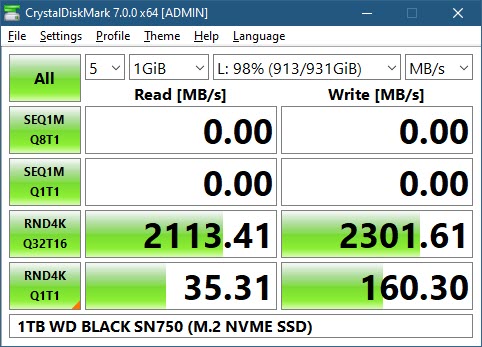New
#1
How to know if drive A (SSD) is really faster than drive B (NVME)
Hi, I've got 2 inertnal SSD hard drives being used as part of my music studio, where I'm trying to get the quickest load/read times possible. These drives are not being written to - just read. Upon loading audio samples into my digital instruments, I'm not sure if I can tell a difference between the regular SSD drive and the NMVE one.
Is there a way to see some data/numbers rather than just rely on what I'm perceiving as "not much difference"?


 Quote
Quote


